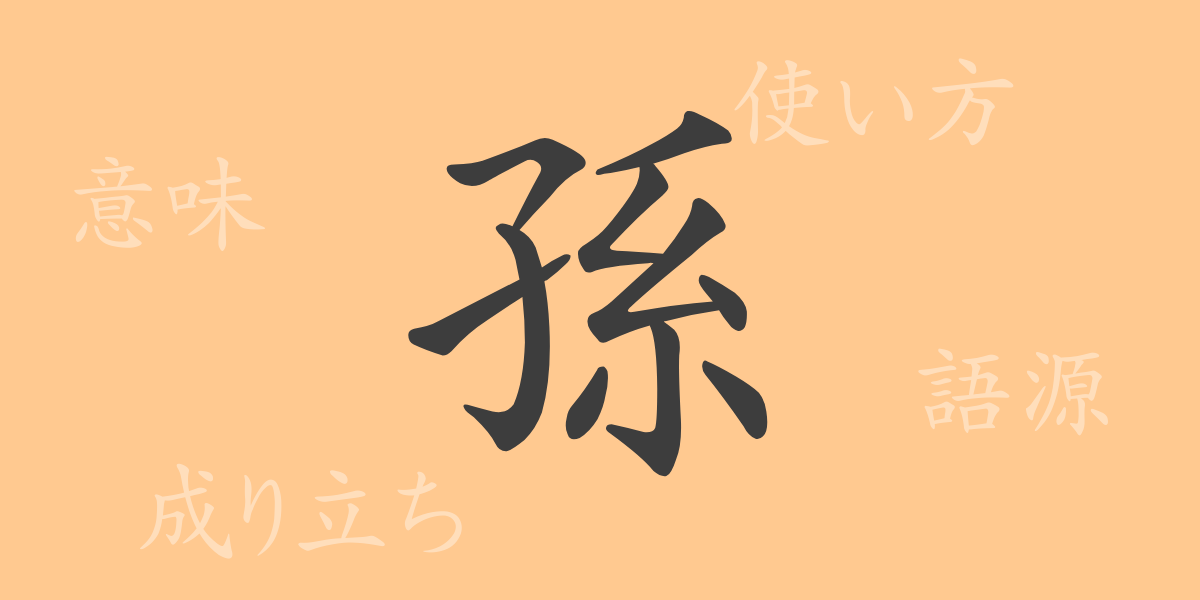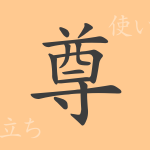The meaning and history of a single Kanji character tell a profound story about Japanese culture. “孫” (ソン)(まご) (son)(mago), symbolizing the family, is a character deeply familiar to many Japanese people. This article delves into the world of the Kanji “孫,” from its origins to its meanings, uses, readings, idiomatic expressions, and proverbs, uncovering its extensive expressiveness and depth.
Origin of “孫” (son)
The Kanji “孫” traces its roots back to ancient Chinese characters. It evolved from pictographic characters, where it became established to mean descendants. Its form combines “子” (こ) (ko), representing a child, with “小” (しょう) (shou), meaning small, appearing under “子” (こ) (ko) as if to indicate a ‘lineage’ or ‘descendants,’ thus coming to signify grandchildren, or the children of one’s children.
Meaning and Usage of “孫” (son)
The Kanji “孫” refers to one’s grandchildren, positioned within the family hierarchy between parents and their children. It is used to denote affection and bonds within blood relations. Metaphorically, it can also represent the continuation or succession of matters.
Readings, Stroke Count, and Radical of “孫” (son)
Here are some key details about the Kanji “孫”:
- Readings: On’yomi “ソン” (son), Kun’yomi “まご” (mago)
- Stroke Count: 10 strokes in total
- Radical: The radical is “子” (こ) (ko)
Idioms, Phrases, and Proverbs Using “孫” (son) and Their Meanings
There are many idioms and proverbs that include the Kanji “孫,” each with unique meanings within the Japanese language. For example, “孫の手” (まごのて) (magonote) literally refers to a tool for scratching unreachable places, metaphorically meaning an indirect aid or method. “孫請け” (まごうけ) (magouke) describes a subcontractor further down the hierarchy, and by extension, it is used to express indirect relationships. The proverb “孫にも衣装” (まごにもいしょう) (magoni mo ishou) illustrates how people can change depending on their situation or environment.
Conclusion on “孫” (son)
The Kanji “孫” represents not just a family member but embodies a wide range of meanings and uses in Japanese. As a symbol of family bonds and cultural expression, its significance is immeasurable. Through this exploration, we hope to have deepened your understanding of the rich background and meanings carried by the Kanji “孫.”

























